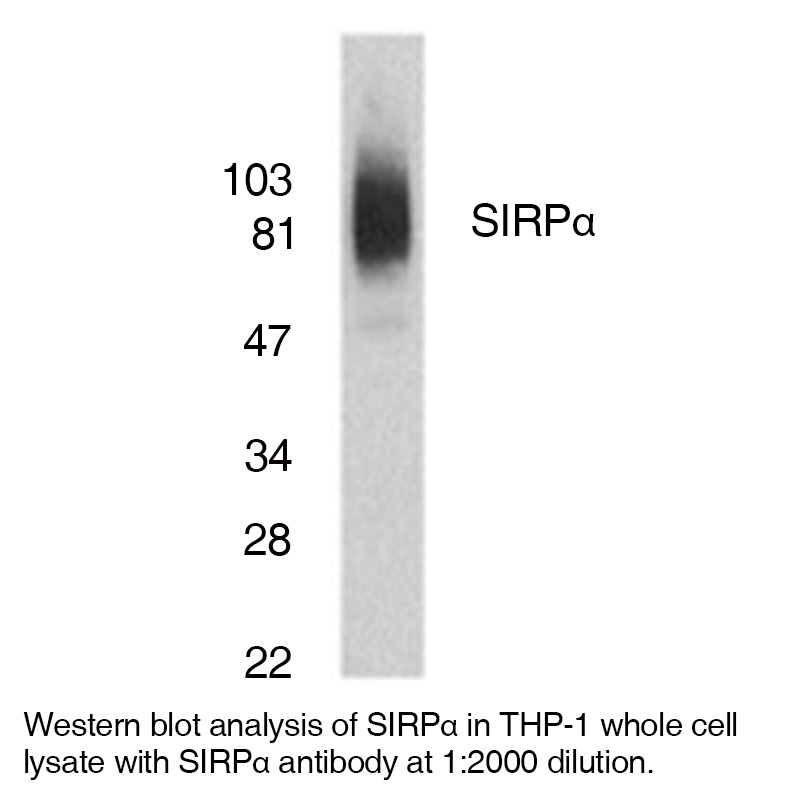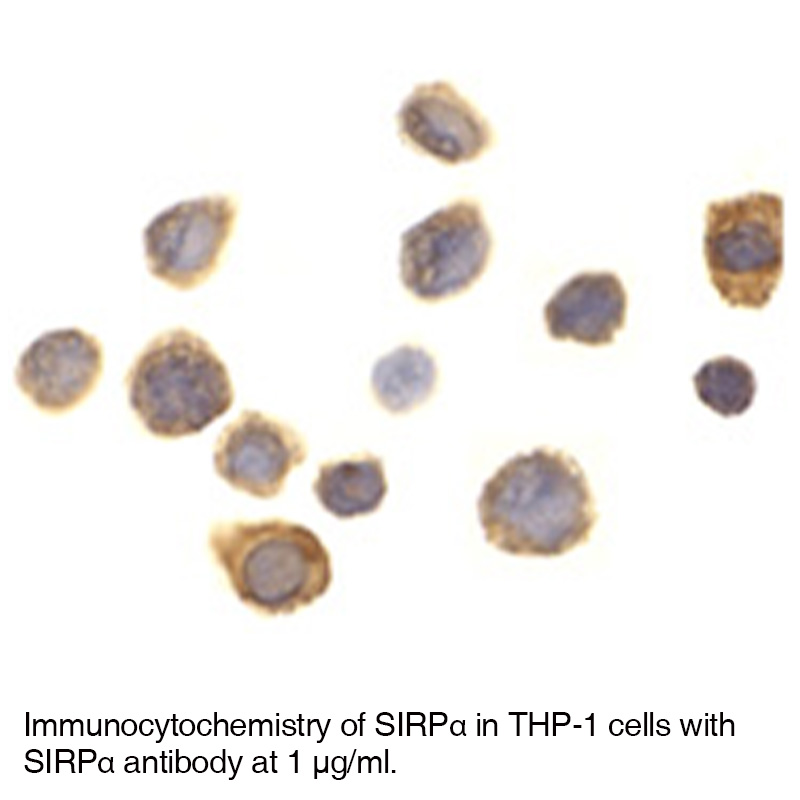Anti-Human SIRPα (CT)
Data
- -
- -
Antibody DetailsProduct DetailsReactive Species Human Host Species Rabbit Immunogen PN:S529 Product Concentration 1.0 mg/ml Formulation This polyclonal antibody is formulated in phosphate buffered saline (PBS) pH 7.4 containing 0.02% sodium azide as a preservative. Storage and Handling This polyclonal antibody is stable for at least one week when stored at 2-8°C. For long term storage, aliquot in working volumes without diluting and store at –20°C in a manual defrost freezer. Avoid Repeated Freeze Thaw Cycles. Country of Origin USA Shipping Next Day Ambient RRIDAB_2831757 Each investigator should determine their own optimal working dilution for specific applications. See directions on lot specific datasheets, as information may periodically change. DescriptionDescriptionSpecificity Rabbit Anti-Human SIRPα recognizes an epitope near the C-terminus of Human, Mouse and Rat SIRPα. This polyclonal antibody was purified using affinity chromatography. Background Protein tyrosine phosphatases (PTPases) SHP-1 and SHP-2 are critical regulators in the intracellular signaling pathways that result in cell responses such as mitosis, differentiation, migration, survival, transformation or death. SHP-2 is a signal transducer for several receptor tyrosine kinases and cytokine receptors. A novel SHP-2 associated glycoprotein was recently cloned from human, rat, mouse and cattle by several labs and was designated SIRPα, SHPS-1, MyD-1, BIT and p84. SIRPα is a new gene family containing at least fifteen members. SIRPα is a substrate of many activated tyrosine kinases such as insulin receptor, EGFR, PDGFR and src, and a specific docking protein for SHP-2. SIRPα has regulatory effects on cellular responses induced by serum, growth factors, insulin, oncogenes, growth hormones and cell adhesion and plays a general role in different physiological and pathological processes. PubMed References & Citations1. Kharitonenkov, A. et al. (1997) Nature 386:181 2. Fujioka, Y. et al. (1996) Mol. Cell Biol. 16:6887 3. Yamao, T. et al. (1997) Biochem. Biophys. Res. Commun. 231:61 4. Brooke, GP. et al. (1998) Eur. J. Immunol. 28:1 Technical ProtocolsCertificate of Analysis |




